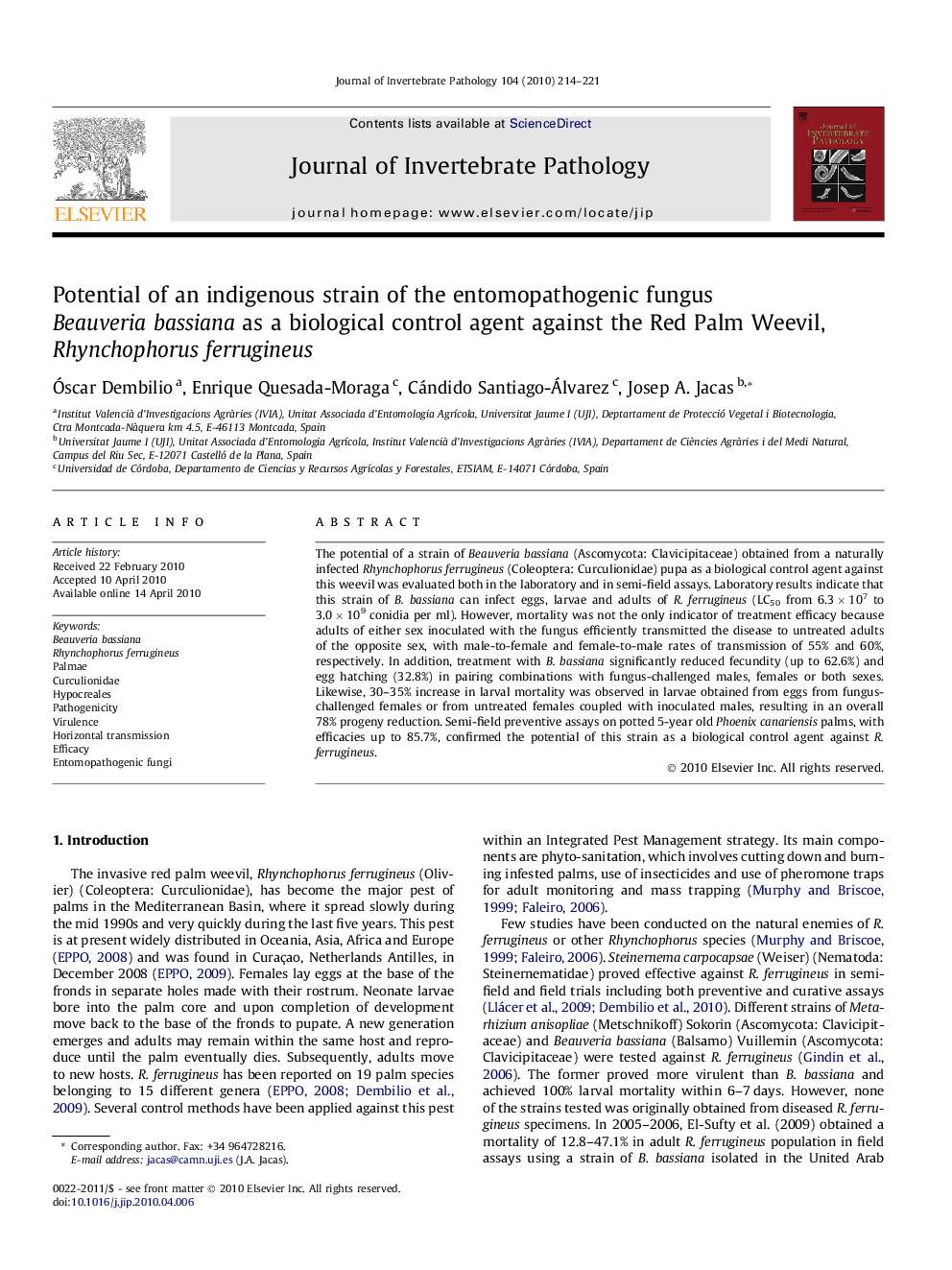| Article ID | Journal | Published Year | Pages | File Type |
|---|---|---|---|---|
| 4558217 | Journal of Invertebrate Pathology | 2010 | 8 Pages |
The potential of a strain of Beauveria bassiana (Ascomycota: Clavicipitaceae) obtained from a naturally infected Rhynchophorus ferrugineus (Coleoptera: Curculionidae) pupa as a biological control agent against this weevil was evaluated both in the laboratory and in semi-field assays. Laboratory results indicate that this strain of B. bassiana can infect eggs, larvae and adults of R. ferrugineus (LC50 from 6.3 × 107 to 3.0 × 109 conidia per ml). However, mortality was not the only indicator of treatment efficacy because adults of either sex inoculated with the fungus efficiently transmitted the disease to untreated adults of the opposite sex, with male-to-female and female-to-male rates of transmission of 55% and 60%, respectively. In addition, treatment with B. bassiana significantly reduced fecundity (up to 62.6%) and egg hatching (32.8%) in pairing combinations with fungus-challenged males, females or both sexes. Likewise, 30–35% increase in larval mortality was observed in larvae obtained from eggs from fungus-challenged females or from untreated females coupled with inoculated males, resulting in an overall 78% progeny reduction. Semi-field preventive assays on potted 5-year old Phoenix canariensis palms, with efficacies up to 85.7%, confirmed the potential of this strain as a biological control agent against R. ferrugineus.
